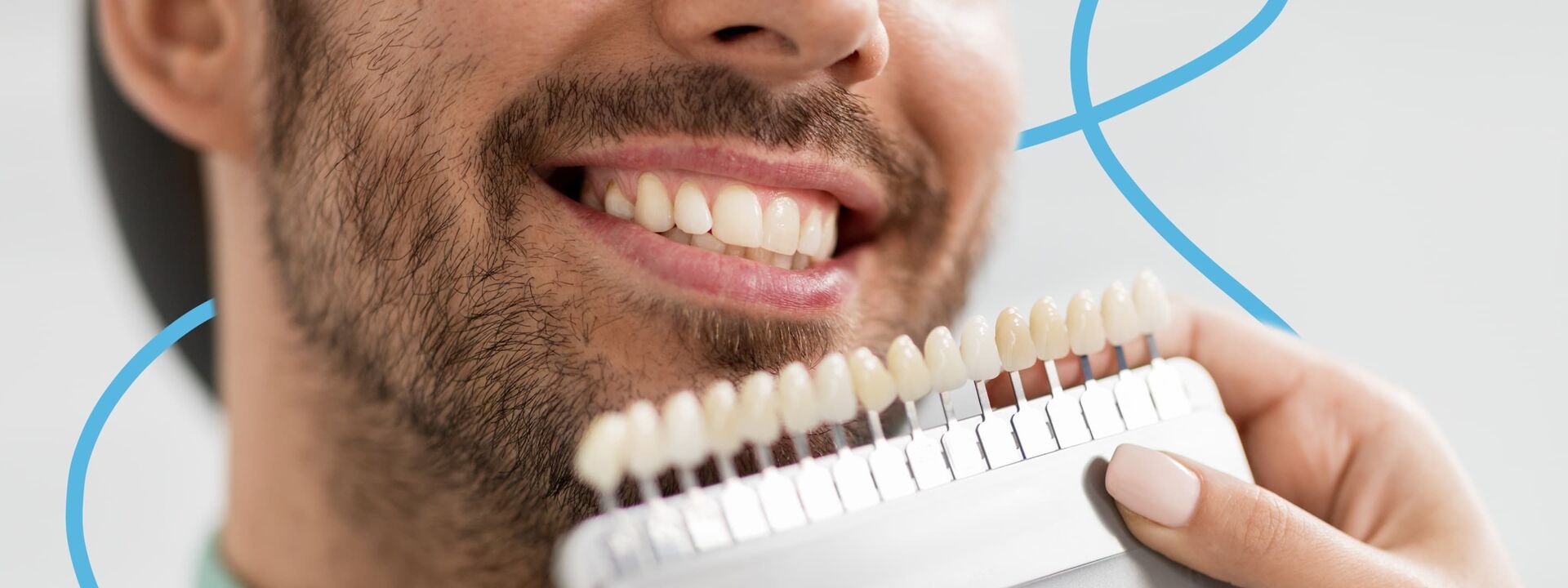
Professional Teeth Whitening - Most Common Questions
Professional teeth whitening is an excellent approach to get a brighter, more attractive smile that will endure for a long time. It is more intrusive and cost-effective than most other cosmetic treatments, but also rapid results are achieved by expert teeth whitening. Professional teeth whitening is a fantastic means of earning your smile and greater confidence quickly.Many people have questioned if professional teeth whitening is suitable for them. Perhaps you contemplated this therapy but were hesitant to contact a dentist because you had unresolved questions or worries. The most commonly asked questions concerning professional teeth whitening are answered in this article.
How Effective Is Professional Teeth Whitening?
Professional teeth whitening can make teeth 8 to 9 shades whiter than they were previously. The efficacy of a professional teeth whitening process is determined by the tooth's condition before the treatment. Professional teeth whitening, on the other hand, may usually restore teeth to their whitest colour. It's generally the same colour as the patient's teeth would be as a teenager.
Is the Process Harmful to My Teeth?
The professional teeth whitening process has no negative long-term or short-term side effects. Interacting with the enamel of teeth is a part of professional teeth whitening. As a result, many people feel there might be some negative consequences. It is, however, entirely harmless and does not affect the tooth enamel.
The professional teeth whitening material is totally safe, and our personnel is meticulous throughout the procedure.
Professional teeth whitening procedures
Professional teeth whitening at a dentist's office is a fast way to brighten your smile, but is it the best option for you? While some individuals value the safety benefits of a whitening procedure performed by a skilled expert, others find the expense of professional teeth whitening to be too expensive.
At Armytage Dental, we can whiten your teeth in the clinic or at home using a variety of techniques. In most cases, experts will use carbamide peroxide to bleach your teeth. This divides the hydrogen peroxide and urea into a chemical process and targets the colour of the tooth. It's regarded as a risk-free method of tooth whitening.
Professional teeth whitening procedures and treatments are far more costly than at-home options. According to the procedure and the location, in-office whitening might cost anywhere from £450 to £1,000 per session. The following are some of the most common professional whitening procedures:
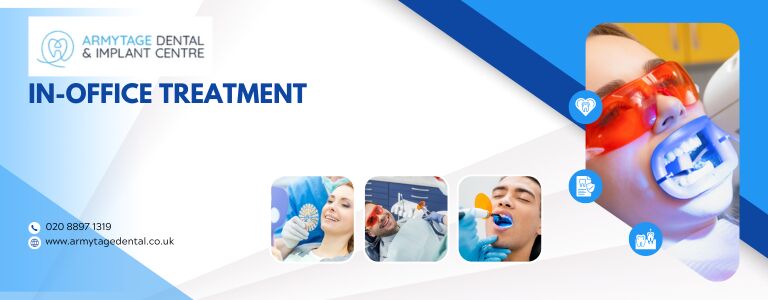
In-office treatment
An in-office whitening treatment might benefit from the speed with which it operates. The whitening effect might remain longer as well. Usually, the teeth can only be whitened for an hour of procedure maybe a few appointments. The hydrogen peroxide content in the applied items is higher than in your home products. Treatments are advised in-office if you also have gums or abfraction lesions.
Your cosmetic dentistry may also employ the use of light to accelerate up the procedure by putting the whitening solution to your teeth, although it hasn't always worked.
Trained dentists carry out office teeth whitening to provide safe and dependable outcomes for bleaching. Professional whitening outcomes tend to be superior since dentists utilize higher concentration bleaching solutions. Many popular professional whitening machines are available including Zoom, Britesmile, Opalescence, and Lumibrite whitening. The mode of operation and cost vary depending on the product, although for all items the internal process of blanching itself is generally identical.
Your dentist prepares your teeth before treatment to remove tartar and debris. Furthermore, a comprehensive dental checkup is carried out to guarantee optimum health of the tooth and gum. You can take photographs of pretreatment to examine the differences before and after.
1-hour ZOOM
Brightening of teeth – up to 90% of their maximal brightness – is significant. It is the whitening process allowed by the FDA and takes about 1 hour to conduct in the dentist's office.. Zoom provides the option for home whitening which is not as harsh. With the Home option, for about 12 days you will be required to wear gel-filled custom trays in the comfort of home for specific hours of the day.
Simple and effective professional Zoom treatments give significant effects. Zoom treatments may cause minor tooth sensitivity like any whitening equipment.
BOOST
Opalescence Xtra Boost is a non-invasive treatment option for stained teeth. It's helpful for discolouration brought on by prescription drugs, dental damage, and other factors. It also aids in the removal of surface stains. Boost utilizes a 38% hydrogen peroxide power bleaching gel that doesn't need to be activated with light. Because the gel is sticky, you won't have to worry about it falling off your teeth once you've used it. Because it includes PF, BOOST has a little reduced risk of developing sensitivity than other whitening solutions. PF is a combination of potassium nitrate, which decreases sensitivity, and fluoride, which helps in strengthening the enamel and lowers the risk of decay
Kor Whitening
Kor is a common teeth whitening product on the market right now. Kor removes all stains and discolouration from teeth by restoring oxygen. It works very well for tetracycline-discoloured teeth. Kor's treatment takes place at a dentist's office, with subsequent treatments taking place at home. After this period, you will only need to wear the gel trays once a month to keep the effects. Kor's efficacy is praised by dentists, in particular, because the whitening trays fit so securely on teeth. This decreases the chance of the whitening gel being diluted by saliva. Since Kor gel is chilled, it retains its efficacy.
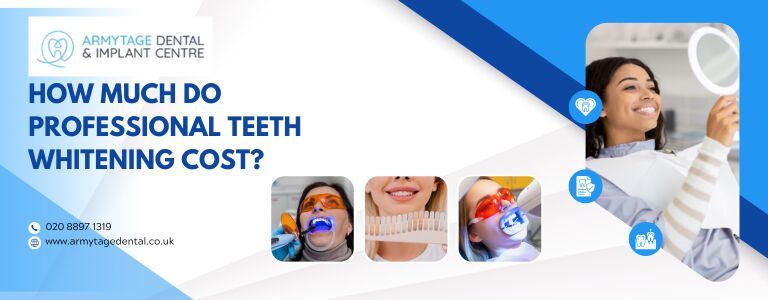
How much do professional teeth whitening cost?
Depending upon the type, professional teeth whitening on the dentists might cost anywhere from £300 to £1,800. The average cost of zoom whitening teeth is about £400 and laser teeth whitening is about £1,000. To find out more on dental costs that the NHS can provide you can view what is included in each NHS dental band charge.
Benefits of professional teeth whitening
A Brighter Smile: One of its great aesthetic advantages is that it offers you a luminous and more attractive smile instantaneously. The whitening kinds of toothpaste may have little or any influence, if any, on a dental care hygiene practitioner.
Better Oral Health: When a practitioner eliminates dental discolouration, it improves the health and strength of your teeth, reducing the risk of dental cavities induced by plaque buildup - the adhesive coating that harbours dangerous bacteria.
Customized & Professional Teeth Whitening Method: Teeth whitening is extremely personalized for your teeth and requirements, with your dentist inspecting your teeth and producing X-rays or digital scans. All you have to do now is select the finest dentist for your needs. You should also make sure that your budget allows for a high-quality teeth whitening process.
Long-Term Effects: Since whitening solutions accessible to dentists and dental hygienists include greater bleaching agents than those offered over the market, the benefits of professional teeth whitening are long-term when combined with a proper home oral health routine.
Less dangerous treatment: Teeth whitening kits from the store may hurt your gums and cause tooth discomfort. Professionals oversee the professional teeth whitening process, ensuring that your mouth is protected from harm and that the whitening chemical levels are adjusted as needed.
Long-Term Financial Advantages: Even though a professional whitening treatment is much more costly than a single over-the-counter DIY solution, it can be less costly than purchasing numerous tooth whitening safe solutions without seeing any effects. In addition, it is considered a tooth whitening safe solution for everyone.
An Expert's Post-Whitening Advice: Your dental professional may advise you on how to maintain your teeth and how to keep them bright and ensure healthy teeth following whitening treatment, as well as which foods and beverages often cause discoloured teeth.
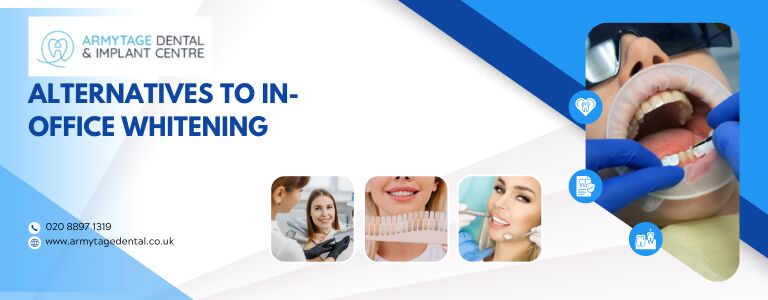
Alternatives to in-office whitening
Tooth Bonding
Tooth bonding is a teeth whitening technique in which a composite resin is bonded to the native tooth's surface. A good dentist can shape the resin to resemble a natural tooth, making it nearly hard for others to notice that you've had dental treatment done. This will conceal the front of the teeth and give them a fresh appearance.
Porcelain Veneers
Veneers are tooth-coloured porcelain coverings that are glued to the surface of the tooth. The porcelain component is excellent at imitating real teeth and may be used to conceal discolouration or other aesthetic flaws. The veneers are robust enough to function in the same way as your original teeth, enabling you to eat, drink, and speak normally.
Lumineers
Lumineers are ceramic veneers that look like porcelain veneers but aren't. Lumineers are created in a lab apart from the dentist's office. Dentists will capture an imprint of your teeth and mail it to the Lumineers lab, in which a veneer will be custom-made to suit your teeth exactly. The veneers are then bonded to the natural teeth for maximum stability and convenience.
Dental Crowns
Dental crowns are a wonderful choice if both aesthetic and restorative repair is required for your teeth. Crowns cover the whole dental area, not just the face or sides, thus when harm has been done on the surface of the tooth these dental crowns can be utilized.
Whitening Toothpastes
Silica, aluminium oxide, calcium carbonate, and baking soda are mild abrasives included in whitening toothpaste that help eliminate surface stains. Whitening toothpastes don't include bleach as with the professional whitening treatments, but they do generally include extra polishing or chemical agents to assist remove more surface stains. They won't assist you to get rid of stubborn stains. Whitening toothpastes can also be harsh, which some dentists advise against. The majority of whitening toothpastes could only lighten your teeth by one shade. If you do decide to use whitening toothpaste, seek BDA approved toothpaste to ensure that it has been thoroughly evaluated for safety and efficacy.

Professional teeth whitening - Frequently Asked Questions
What is laser teeth whitening?
This teeth whitening procedure involves the use of specialized teeth whitening lasers to enhance the bleaching action of a concentrated gel put on the teeth.
It is also called "laser bleaching" or "power whitening," The whitening process is accelerated by bright light. Although laser teeth whitening is more expensive than other options, it is the closest you'll come to "immediate" whitening. This might be the finest professional teeth whitening option for you if you're looking for rapid results.
To preserve the gums, the first stage in the laser teeth whitening procedure is to put a seal or shield. The teeth are therefore covered with a whitening agent, which is generally hydrogen peroxide. This whitening method is made so quick and effective by using a laser to shine on the teeth during the procedure.
Although the outcomes of laser whitening must be visible just after one visit, your dentist could advise that you repeat the procedure to produce the desired outcomes.
How long does teeth whitening take?
When considering teeth whitening, it's important to remember that the amount of bleaching required is proportional to the amount of staining or discolouration on the teeth. Professional teeth whitening usually takes 2 to 4 weeks to complete.
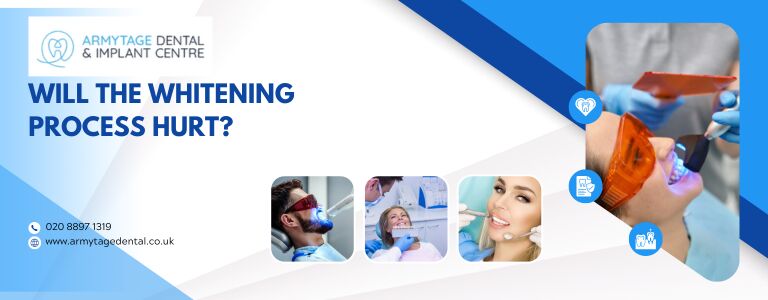
Will the whitening process hurt?
In most cases, a professional teeth whitening procedure is painless. However, if you have weak enamel, there may be some sensitivity. if you experience pain after whitening, it should subside within 24 to 48 hours. If it lasts longer than this, contact your dentist immediately.
In most cases, your dentist will clean your teeth before whitening to ensure the enamel is healthy. This helps prevent pain or sensitivity during and after the procedure.
To guarantee that the teeth whitening treatment reaches all of the teeth, the dental office staff must first construct the mouthguard using imprints. Once the treatment progresses, usually from the comfort of your own home, you will be required to use the whitening solution daily for 2 to 4 weeks. The degree of stain will determine how much you apply. Typically, these therapy sessions run between 30 minutes to an hour. Visiting the dental professional for in-office whitening care is an option available to dentist-created whitening trays and solutions. In most cases, in-office treatment can be completed in one or two appointments, with results appearing within hours.
It takes approximately a month of using mouthpieces each night for over-the-counter and at-home teeth-whitening products to start to work. Furthermore, over-the-counter treatments employ mouthpieces that allow the solution to reach the gums rather than all of the teeth.
What Stains will the treatment address?
There are many possible explanations for the staining of the teeth. Some meals and drinks are the common causes. The holes, bumps, and grooves of the teeth soak in foods and drinks, causing staining, discolouration, and white spots. These surface stains may be handled easily with routine whitening of the teeth.
Coffee, dark tea, dark soda, red wine, fruits, and fruit juices, like blueberries and blackberries, are the most prevalent meals and drinks that produce tooth colouring on the enamel. All these stains can be addressed by teeth whitening processes.
Genetics, diseases, medical treatments, ageing, amalgam restorations, medications, particularly tetracycline, tobacco use, and fluoride are all factors that alter the colour of your teeth. Teeth whitening procedures can also aid in the removal of such discolouration.
Fortunately, there are a variety of methods available to assist you in reducing tooth discolouration. Although both at-home and professional whitening procedures are provided, the cost and efficacy of these services and products vary significantly.
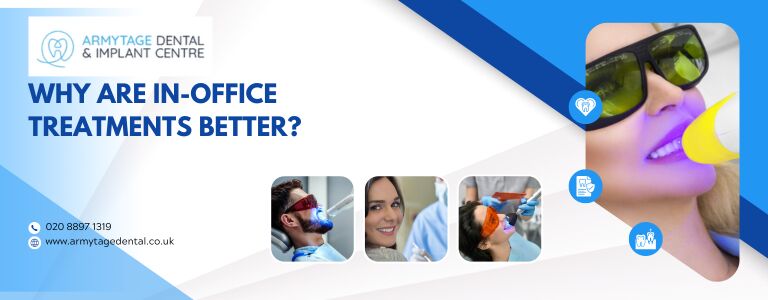
Why are in-office treatments better?
It's no wonder that in-office professional teeth whitening is so common since it's a quick and affordable way to significantly enhance the appearance of a smile. The optimal teeth whitening technique for you is determined by your desired shade, time constraints, and financial constraints.
Based on your demands, a dentist will prescribe the optimal teeth whitening option. The following are some of the advantages of in-office whitening:
- Completed under the guidance and supervision of a dentist
- It takes about an hour to complete.
- Has the capacity to whiten teeth by several shades in a single treatment.
- Teeth whitening by a dentist is a safe, fast, and cost-effective procedure.
How long will teeth whitening last?
The longevity of professional teeth whitening treatments is mainly determined by how you take care of your teeth after the operation. Staining foods and beverages, like wine, coffee, and tomato sauce must be consumed in moderation. Your teeth may begin to change colour sooner if you smoke than if you don't. Professional tooth whitening usually lasts between 6 months and 2 years.
When will I need a touch up and how do I preserve results?
Long-term outcomes are influenced by your particular combination of behaviours, foods, and tooth structure. In 5 years, nonsmokers who don't consume coffee or tea typically haven't changed much. Touch-ups might take anywhere from 6 to 12 months, based on your lifestyle.
To preserve the results of the teeth whitened, some patients require 2-3 touch-up procedures every 2-3 years. You'll always have whiter teeth than when you started. Simply ask us to monitor the colour of your teeth at subsequent sessions. If it has altered from your pre-bleaching shade, they will let you know if a touch-up is necessary.
Is laser teeth whitening safe
Teeth whitening with a laser is a safe and effective technique. It is unlikely to produce significant adverse effects, however, it may cause discomfort for a short period of time. The most frequent adverse effects are tooth sensitivity and mild gum inflammation. They are usually moderate and short-lived, but in some persons, they can be severe.
Call us to make an appointment
We are accepting new patients and our team are here to help
Call us now
Teeth Whitening Offer £270
Teeth Whitening and Hygiene offer for £270 until end of April 2021.

Invisalign FREE teeth whitening
Invisalign FREE teeth whitening
08.04.2024
5 Signs You Should See an Endodontist
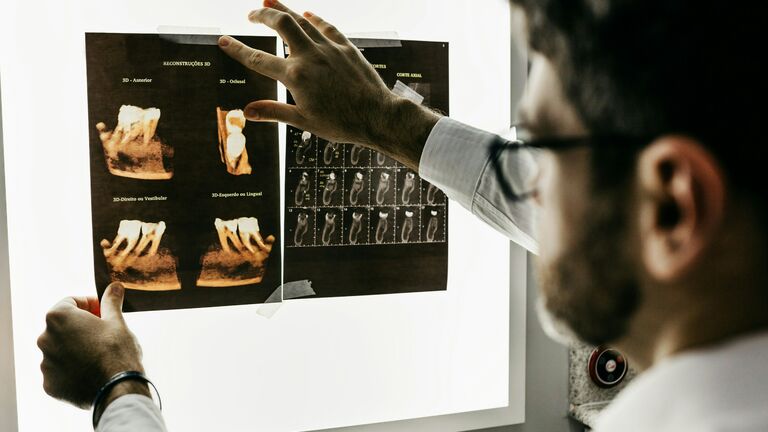
04.04.2024
Can I Get Implants with Gum Disease?
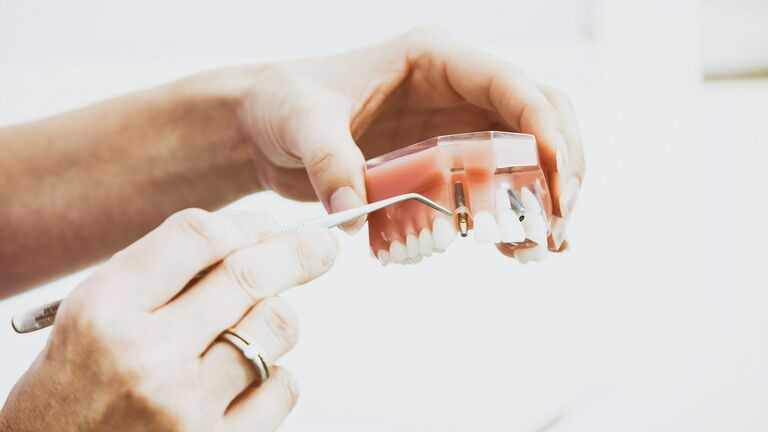
04.04.2024
What Can I Eat After Dental Implant Surgery?

Call us to make an appointment
We are accepting new patients and our team are here to help